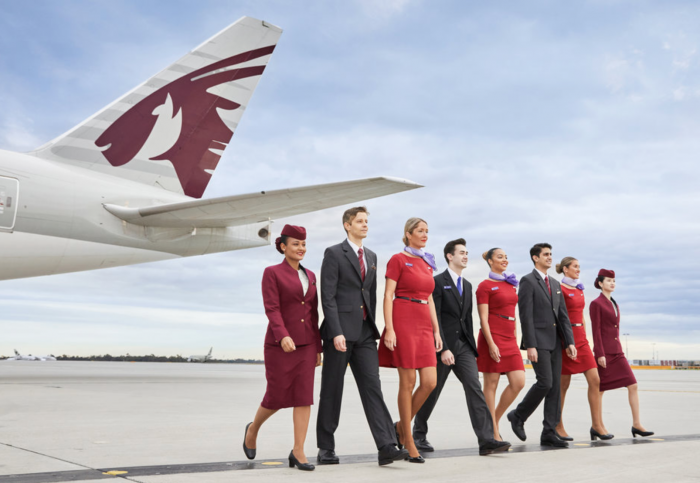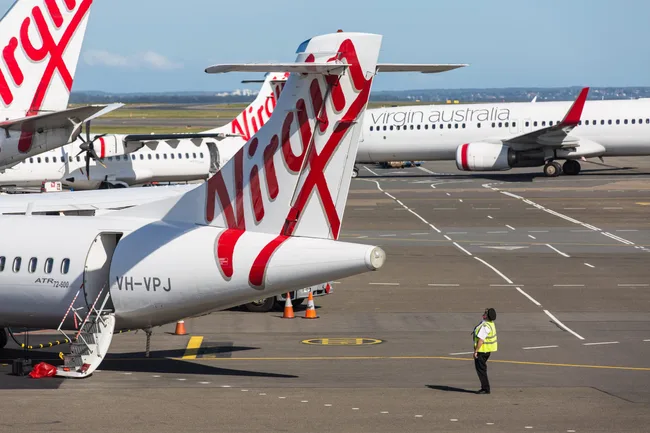In a bold step towards greener skies, Virgin Australia and Qatar Airways have announced a new partnership with Renewable Developments Australia (RDA) to build a large-scale Sustainable Aviation Fuel (SAF) plant in North Queensland. This major project is expected to produce up to 96 million litres of SAF per year and aims to help make air travel more climate-friendly.
The proposed SAF facility will be located in the Charters Towers region and is expected to become one of the largest in Australia. The project will focus on converting sugarcane-based bioethanol into clean aviation fuel through a process known as Ethanol-to-Jet (EtJ) technology. This advanced method will allow the facility to produce fuel that reduces greenhouse gas emissions by up to 70% when compared to traditional jet fuels.
While still in the pre-final investment decision phase, the project is gaining strong support and attention from key industry players, governments, and the aviation community. If all goes according to plan, fuel production could begin as early as 2029.
What Is Sustainable Aviation Fuel (SAF)?
Sustainable Aviation Fuel is a cleaner alternative to traditional jet fuel. It’s made from renewable resources such as agricultural waste, used cooking oil, algae, and in this case, sugarcane-based bioethanol. SAF can be used in existing aircraft engines and fuel systems without modification, making it a practical and immediate solution for reducing carbon emissions in aviation.

Unlike fossil fuels, SAF can significantly reduce life-cycle carbon emissions. This means that from the moment the raw material is grown or collected to the moment it is burned in a jet engine, the total emissions are far lower. The process used in the Virgin Australia and Qatar Airways project is projected to slash emissions by around 70%, which is a huge improvement.
Partnerships Driving the Project Forward
The collaboration brings together key players in the aviation and renewable energy sectors. Virgin Australia and Qatar Airways are two globally recognized airlines with strong commitments to sustainability. By joining forces with Renewable Developments Australia, a company with expertise in green infrastructure, they aim to create a powerful, future-focused alliance.
Tony D’Alessandro, Managing Director of Renewable Developments Australia, expressed excitement about the partnership. He said the project represents a major step forward for both the aviation industry and regional Australia. “We are proud to be working with two internationally respected airlines. This project is designed to deliver real, long-term emission reductions while building a new industry in regional Queensland,” he said.
Virgin Australia has been working toward sustainability for several years. In 2023, the airline signed a Memorandum of Understanding (MoU) with Boeing to explore environmental initiatives, including Sustainable Aviation Fuel development. This latest partnership builds on that commitment and moves it into real, actionable territory.
For Qatar Airways, a long-time leader in aviation innovation, the partnership also aligns with their environmental goals. The airline has already taken steps to improve fuel efficiency, reduce waste, and lower emissions across its global operations.
Local Impact in North Queensland
Beyond reducing emissions, the SAF plant is expected to bring significant economic benefits to North Queensland. The Charters Towers region was chosen for its access to sugarcane crops and skilled local workforce. The project is set to create dozens of direct and indirect jobs during both construction and ongoing operation phases.
Charters Towers Mayor Liz Schmidt welcomed the announcement and highlighted the plant’s potential to boost the local economy. “This is a fantastic opportunity for our region. It puts us at the centre of Australia’s green energy future,” she said. The mayor also noted that regional Queensland stands to benefit from improved energy security, investment, and industry diversification.
The plant will not only produce SAF but will also power its operations using renewable energy. By reusing waste products from the ethanol conversion process, the facility will be able to generate its own electricity and further reduce its carbon footprint. This closed-loop system makes the plant highly efficient and eco-friendly.
Why SAF Matters for the Aviation Industry
The aviation industry currently accounts for about 2-3% of global carbon emissions, and that number is expected to grow as air travel increases worldwide. To meet climate targets and achieve net-zero goals by 2050, airlines and governments must find alternatives to fossil fuels.
Sustainable Aviation Fuel is considered one of the most important solutions. According to the International Air Transport Association (IATA), SAF can reduce emissions by up to 80% compared to traditional jet fuel. It’s also compatible with existing aircraft, meaning it doesn’t require new planes or major changes in infrastructure.
However, one of the biggest challenges has been the lack of large-scale SAF production facilities, especially in countries like Australia. That’s what makes the Virgin-Qatar-RDA partnership so significant. It represents a major step toward closing the supply gap and building a local, reliable source of green fuel.
Australia’s Growing SAF Industry
Australia has been slowly moving toward building a domestic SAF industry. In recent years, airlines like Qantas and Virgin have pushed for government support to help scale up production. The Australian government has signalled interest in supporting green fuel development, and several funding initiatives are already in motion.
In 2022, the Sustainable Aviation Fund was launched with over $300 million aimed at backing SAF startups and infrastructure. More recently, Airbus and Qantas committed $15 million to a climate tech investment fund that supports SAF-related technologies.
The country’s unique agricultural capacity, especially in regions like North Queensland, makes it an ideal location for biofuel production. With its vast sugarcane fields and access to skilled labor, the Charters Towers site offers a perfect base for SAF development.
Looking to the Future
The collaboration between Virgin Australia, Qatar Airways, and Renewable Developments Australia is more than just a business partnership — it’s a clear sign that the aviation industry is ready to take serious action against climate change. By investing in Sustainable Aviation Fuel, these companies are not only reducing their environmental impact but also helping to build a cleaner, more resilient future for air travel.
As the project moves toward its final investment decision, stakeholders are optimistic. If successful, the Charters Towers SAF plant could become a model for similar projects across Australia and the Asia-Pacific region. It’s a game-changer — not just for the environment, but also for regional economies and the global aviation industry.
By turning local crops into clean jet fuel and creating new jobs in the process, this project has the potential to transform both the skies and the ground beneath them.



